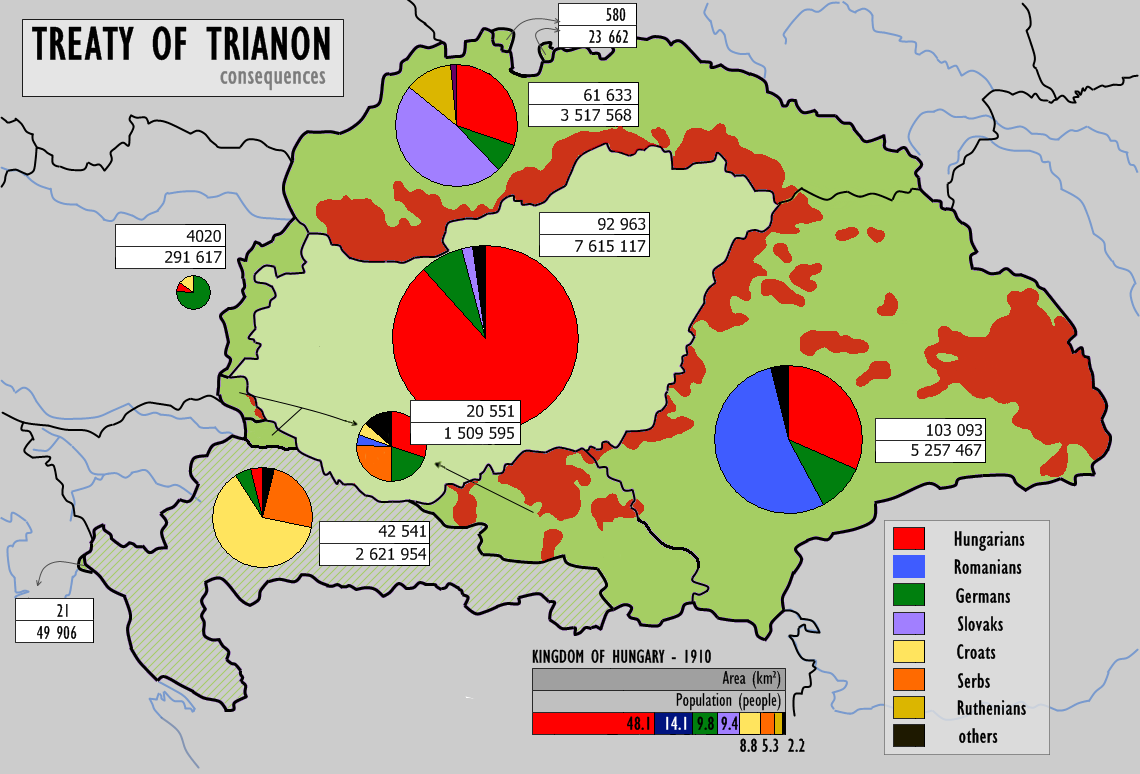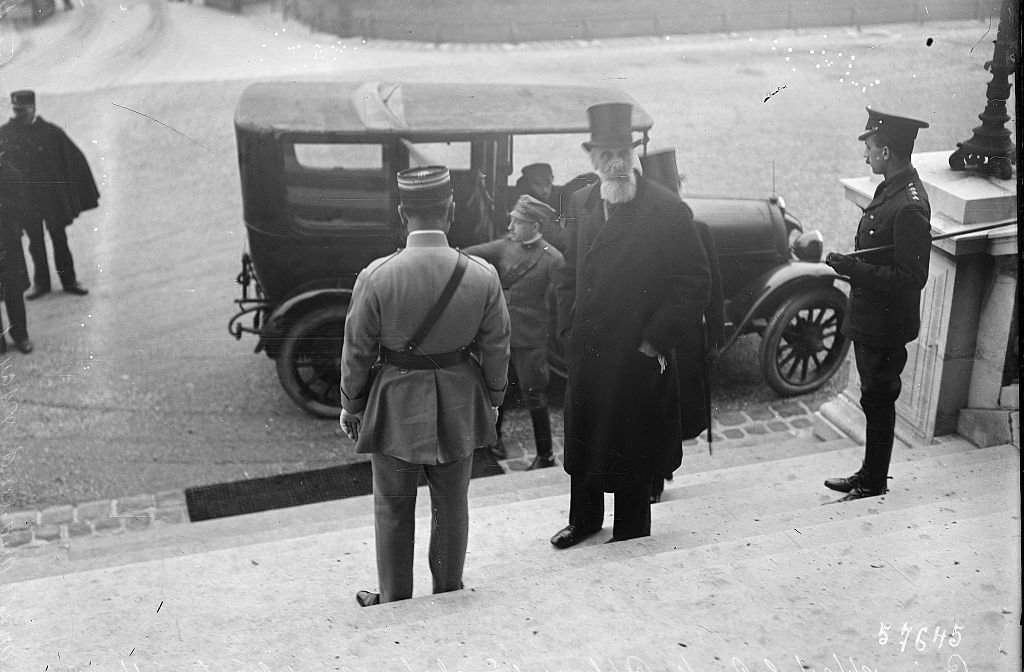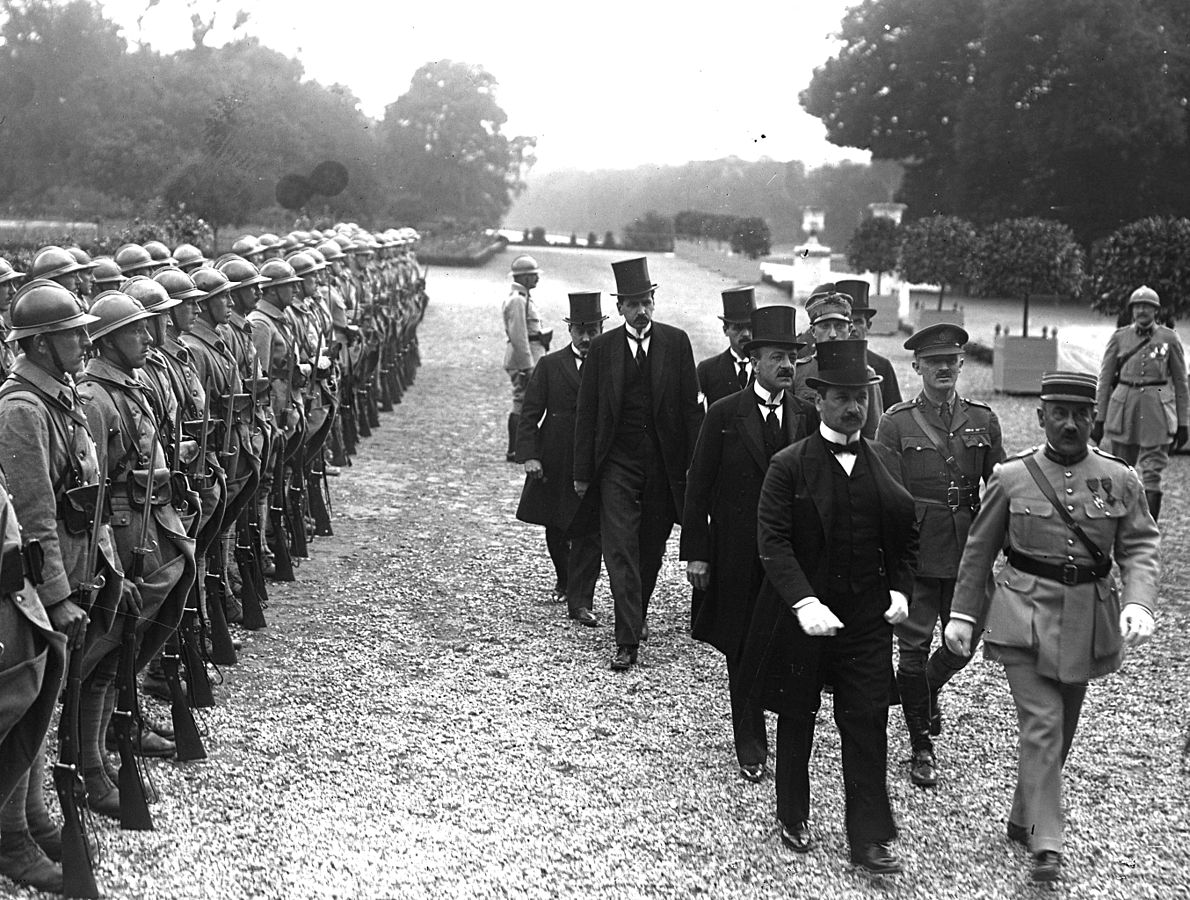Change language:
Prostitutes and secret clauses: 5+1 perplexing myths about the Treaty of Trianon

The signing of the Treaty of Trianon is considered one of the most tragic events in Hungarian history. However, despite—or perhaps because of—its significance, many misconceptions and legends surround this event.
The Treaty of Trianon was signed at the Grand Trianon château in Versailles on 4 June 1920. It formally ended the war between the Allies and the Kingdom of Hungary, redrawing the country’s borders and resulting in Hungary losing over two-thirds of its territory and more than half of its population.

The economic and social upheaval brought about by the treaty, along with the collective trauma it inflicted on the country, has been so influential in Hungarian history that, in 2020, the BBC noted how “for Hungary, the 1920 treaty was a national wound that still festers to this day.”
Indeed, as reported by DNH in 2020, 83% of Hungarians believed that the Treaty of Trianon was the most tragic event in the country’s history. Another representative study from 2020 found that a majority of Hungarians agreed that “those who are Hungarian are still hurt by Trianon to this day.”
On the 104th anniversary of the event, we examine some of the misconceptions surrounding this significant piece of history.
Albert Apponyi’s speech in three languages
It is an oft-repeated claim that the leader of the Hungarian delegation, Count Albert Apponyi, delivered his speech in three languages to the victors of the war in response to the peace terms. While this is technically true, it needs some clarification.
As Rubicon historical magazine notes, Apponyi’s speech, which lasted about 70 minutes, was delivered in French. He then summarised the most important parts in English (as British Prime Minister David Lloyd George did not speak French well). Finally, in Italian, Apponyi only addressed a few sentences to the Italian Prime Minister at the very end of his speech.

Photo: Wikimedia Commons
Map forgery and navigable streams
As highlighted by Múlt-kor magazine, there were accusations in the press at the time that representatives of Hungary’s neighbouring states had falsified maps to persuade the Entente powers to decide in their favour. It was alleged that small streams were often presented as navigable rivers to influence the new borders.
One such accusation was that the Czechs at Sátoraljaújhely falsely claimed the Ronyva Rivulet was navigable. When the Entente Commission surveyed the area, the Czechs allegedly lit a fire on the bank of the stream, waved a blanket over it, and told the French and British that a steamer was passing by.
This legend spread quickly and reached Budapest by 1927. In 1938, it was covered in several newspaper articles. However, local history and the Sátoraljaújhely press did not mention the navigability controversy.
Similar tales surfaced in Balassagyarmat, Hont and Nógrád counties about the river Ipoly. In these cases, the border issues were indeed disputed, but not because of the rivers. Instead, the disputes were due to strategic concerns such as raw material deposits and railway lines.
The French PM’s alleged hatred of Hungarians due to his daughter-in-law
Another more scandalous story involves the French Prime Minister Georges Clemenceau. Legend has it that Clemenceau wanted to punish the Hungarians with the Treaty of Trianon because his son had married a Hungarian woman whom Clemenceau despised.
While the prime minister’s son did marry a Hungarian, and they divorced shortly after their children were born, historical sources show that Clemenceau had a good relationship with his daughter-in-law.
Although Clemenceau had disagreements with the Hungarian political elite, he was not particularly interested in the ‘Hungarian question’ and focused instead on French power interests.
Romanians tried to bribe Clemenceau with prostitutes
Another popular allegation about Clemenceau is that the Romanian delegation tried to bribe him with 16 prostitutes. Regarding this claim, vasarnap.com simply notes, “as for the prostitutes, it is enough to mention that Clemenceau was 79 years old in 1920.”

The Treaty of Trianon was only in force for 100 years
As dívány.hu recalls, one of the most widespread legends is that the treaty—or a secret clause—states that its provisions are only valid for 100 years, after which the annexed territories would revert to Hungary. In the 2020 survey, 14 to 20 percent of respondents believed this 100-year limit to be mostly or completely true.
The Treaty of Trianon actually expired in 1947 with the signing of the peace treaties that ended the Second World War, making the 2020 date impossible.
Secret clauses
The 100-year expiry claim is linked to the misconception that the Treaty of Trianon has secret clauses. This is not true.
There was, however, a letter attached to the main text from the French Prime Minister, the Millerand letter, which stated that the border adjustments and sanctions agreed at Trianon could be changed and that the French government would support the Hungarian government in this.
Read also:








History is rewritten over and over again. The truth is hidden somewhere. This is a new version, trying to make wester EU countries look better. This is nonsense.
According to Fidesz, the opposition signed the deal 😂
Former senior partner Austria? Hardly a complaint after the end of the Habsburg’s and empire, downsizing to a manageable nation state size, at same time post WWI?
According to Maria, Ukraine should accept the lost of his territory against russia, but what she does not accept, just like orban, is the lost of 2/3 of Hungarian territory.